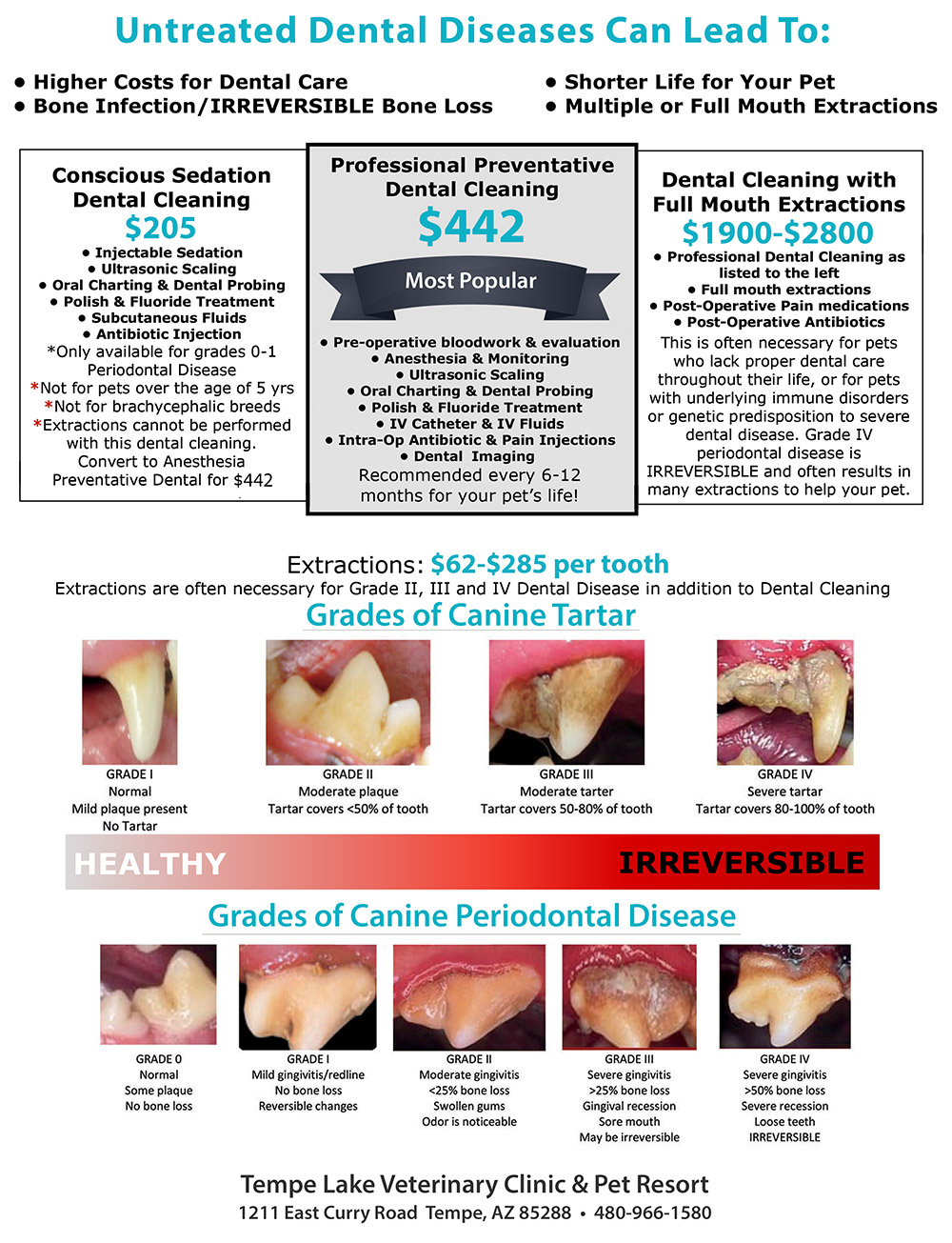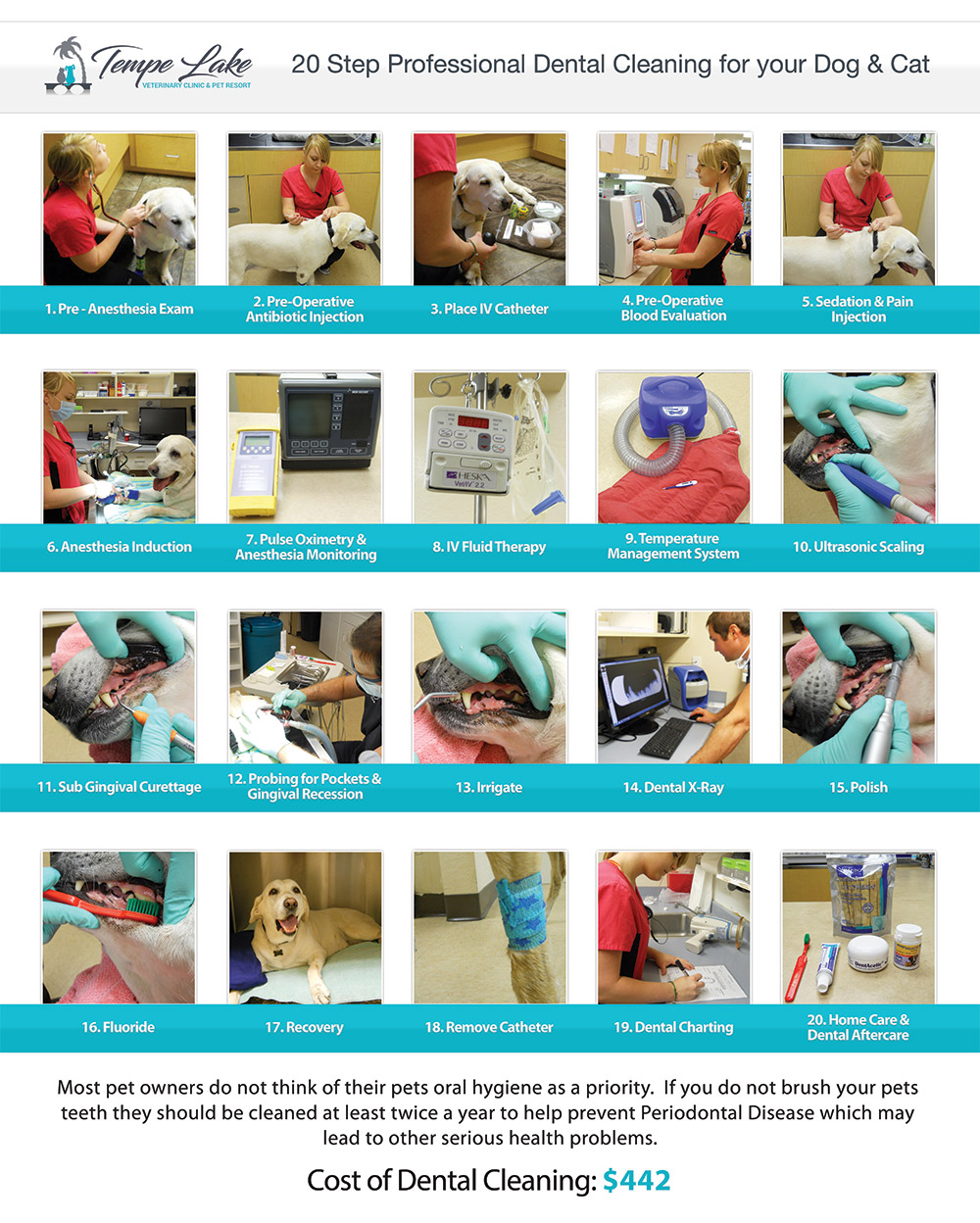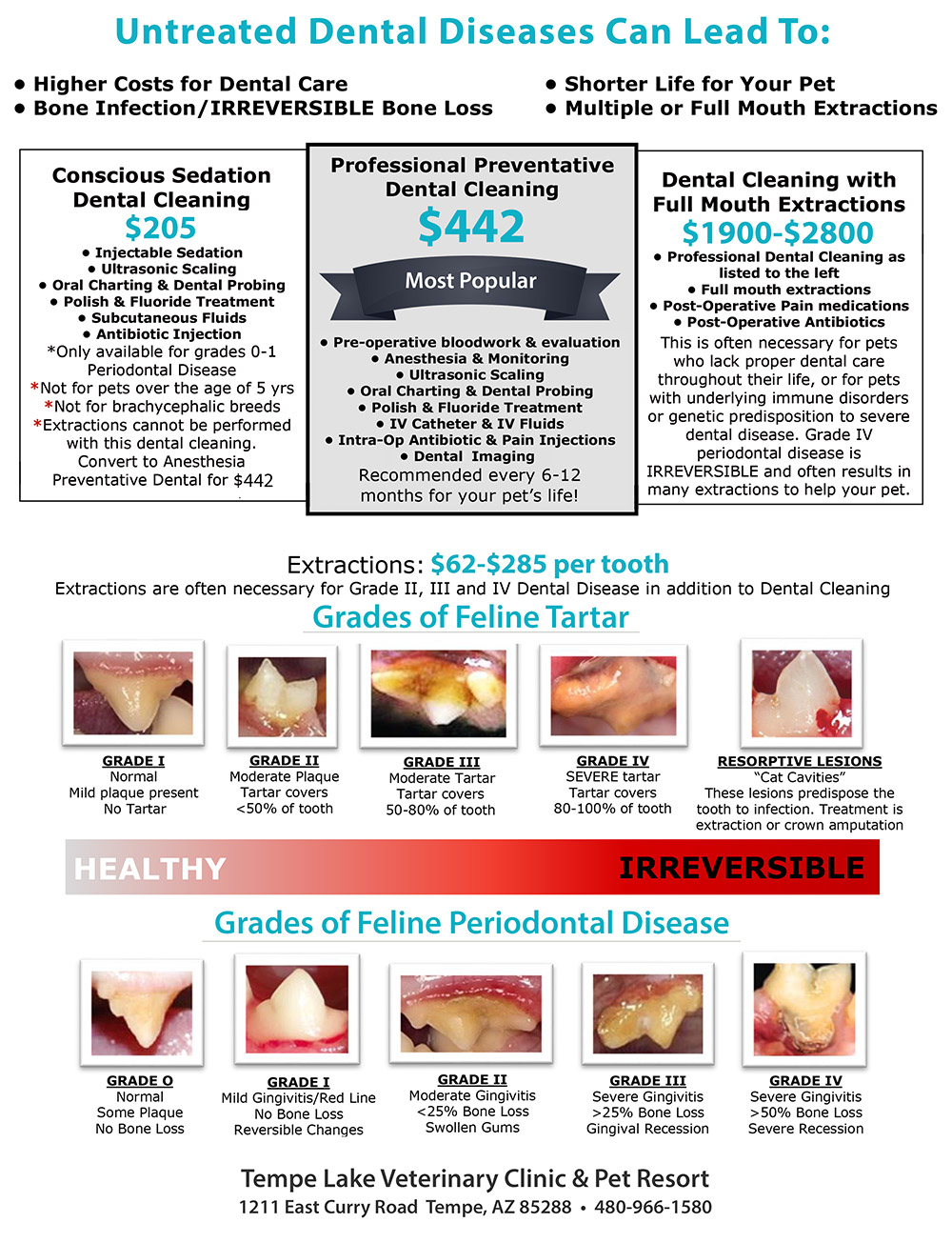Dental care is EXTREMELY important for both you and your pet. It helps to prevent the need for frequent cleanings as well as health problems such as gingivitis – tooth decay – loss – and Kidney Failure associated with Dental Disease. Bacteria in the mouth and on the teeth easily migrate into the blood stream and can negatively affect your pet’s kidneys – heart and liver. Periodontal disease is PREVENTABLE with routine cleanings and routine preventative measures performed at home. Here are some ways you can help
PREVENT Dental Disease in your pet:
- Our first recommendation is starting your pet on PlaqueOff. This product bonds to tartar, breaks tartar off the teeth, and helps prevent new tartar from forming. Simply sprinkle or mix PlaqueOff into your pet’s food daily. PlaqueOff has no artificial colors, preservatives, gluten or sugar. This powder can help support normal and healthy teeth, gums, and breath. This product works well for dogs and cats that do not like to chew or are too sick for a sedated dental cleaning.
- You can also treat your dog or cat to Dental Chews – For dogs – we recommend OraVet Chews.
- Used daily, they clean, then protect. The dual action approach of OraVet Chews doesn’t just clean teeth and freshen breath. It creates a barrier to protect against plaque, tarter, and bad breath. The chewing action works to loosen and dislodge plaque to help break it away from teeth. Then it forms a barrier to help protect against bacteria.
- OraVet Chews are the first and only dental hygiene product to contain delmopinol. Delmopinol works to from a preventive barrier that blocks bacteria, and the future formation of plaque and tarter that builds up over time. It is not recommended to give your pet more then one OraVet Chew per day.
- And lastly – but possibly the most important aspect to Dental Care – We recommend you try brushing your pet’s teeth at least three times a week – You can buy toothpaste and toothbrushes here or at a local pet store – We know it can be difficult to brush your pet’s teeth so here are a few ideas that may help you be more successful in performing this task:
- Always put your pet someplace where they are NOT alone – such as a bathtub, table or counter
- ALWAYS use a VERY soft bristled brush or finger brush – You can even start out by using your finger for the first few brushings to help your pet get used to the experience and the toothpaste
- Do NOT use Human toothpaste – It contains Soap and Other ingredients that should NOT be swallowed
- These ingredients could make your pet ill
- Use pet toothpaste – We sell multiple tasty flavors of the CET Toothpaste – or you may make your own toothpaste from equal parts of salt and baking soda – Simply place the “Toothpaste” on a wet toothbrush or soft cloth
- Brush with a circular motion along the gum line and both the insides and outsides of their teeth
- Be sure to feed your pet a special crunchy treat or dog food after brushing – Rewards for good behavior will help your pet understand that brushing is fun and should be done as often as possible
- Try feeding dry crunchy food and treats – These will help to scrape plaque off the teeth
- Every dog and cat are different and some are more prone to dental disease than others – Therefore periodic dental exams and regular cleanings are important to maintain your pet’s good health



